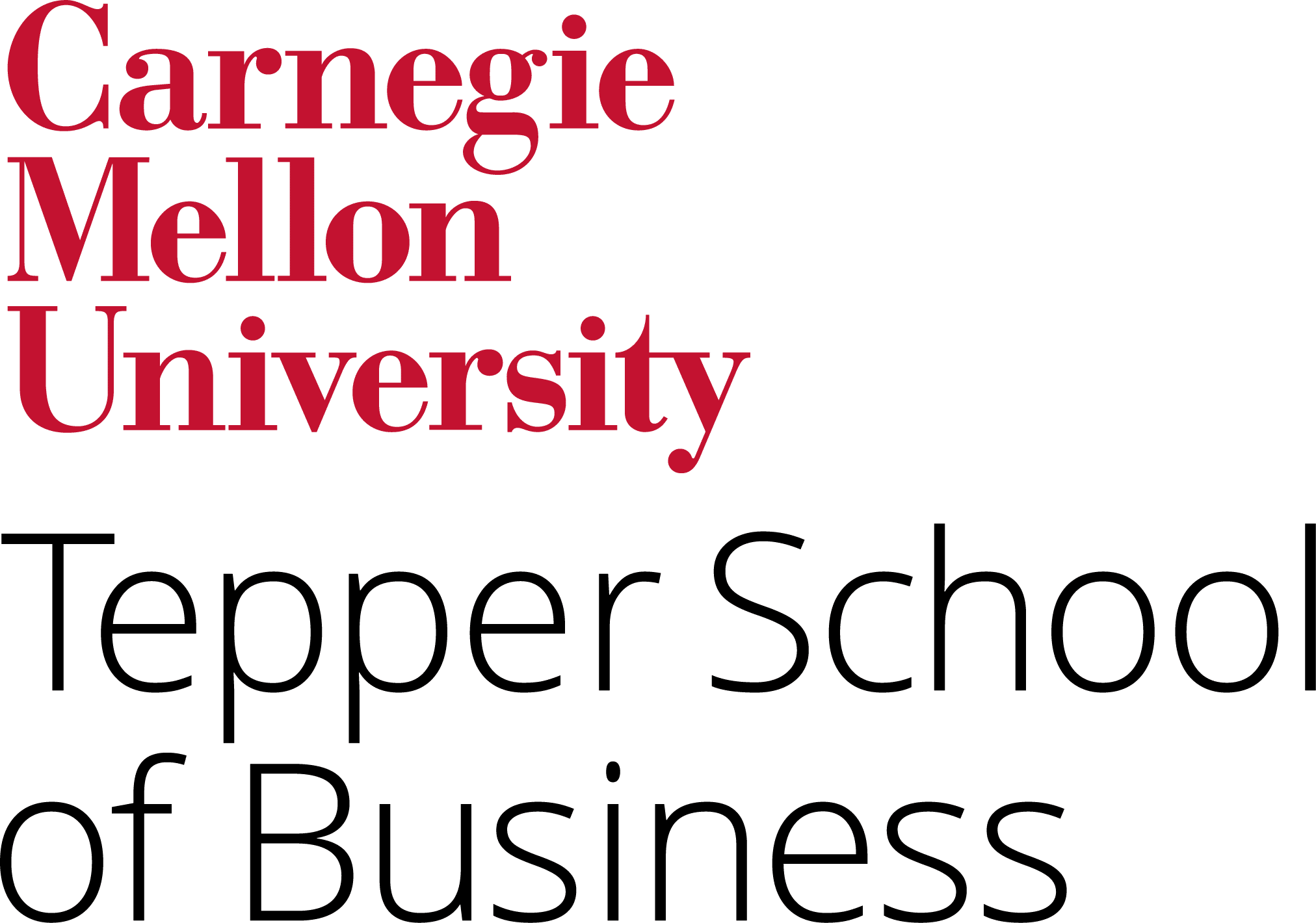Creating Connections Through the Part-Time MSBA
Unlike its full-time counterpart, the Tepper Part-Time Master of Science in Business Analytics (MSBA) program is largely online and off-campus. While an online MS in Business Analytics offers unmatched flexibility, it can come with challenges when creating a personal connection.
Dr. Kathleen Conway is the Executive Director of the Tepper School MSBA and MSM programs in Pittsburgh, Pennsylvania, USA. Recognizing the importance of getting the balance right, she explains, “One of the challenges that we see in online graduate programs is a feeling of being disconnected…from the faculty in the program, from the support staff that are here to help.” (00:24)
To solve this, the Tepper School of Business designed a course that blends online study with regular, in-person experiences. The online space delivers rigorous academic content, whereas on-campus weekends bring students face-to-face.
These optional immersive weekends are academic touchpoints as well as networking and socializing events. Dr. Conway elaborates, “We have a series of on-campus experience weekends where students have the opportunity to come to our campus and fully engage with their network of peers as well as faculty.” (00:40).
This approach prioritizes both technical learning and human connection. As a result, students never feel like they’re going it alone.
BaseCamp & Beyond: Building Cohort Chemistry
The Tepper Part-Time MSBA Program begins before classes even start with BaseCamp. BaseCamp is an in-person orientation that sets the tone for everything that follows. It gives students the chance to bond, collaborate, and understand the environment before entering the virtual classroom.
Dr. Conway explains that BaseCamp intentionally focuses on people, not just processes. “It (BaseCamp) gives students the opportunity to learn about each other’s communication styles, their preferred ways of working…just to learn about them as a human and as a person” (01:22).
BaseCamp outlines schedules and syllabi while building trust and camaraderie among students. This proves vital in collaborative projects and team-based assignments throughout the year.
A Student Perspective
Olivia Haberberger highlights just how transformative this experience was. “The most rewarding part of the program has been getting to meet and engage with my cohort-mates at BaseCamp and during the Analytics Immersion sessions,” she says. For a class made up of professionals from across the globe, from Mexico to Hong Kong, this early in-person time together made all the difference. “One of my favorite memories was taking some folks to the Pirates game…they all adored the Zambelli fireworks show after the game,” Olivia recalls.
BaseCamp, therefore, acts as another pillar of Tepper’s emphasis on real-world connection in an online format. It helps students start strong and stay connected long after BaseCamp ends.
The Tepper School of Business’s data-informed but human-driven philosophy underpins the part-time experience. While mastering analytics is essential, the School believes that data alone doesn’t make decisions. People do.
A Safe Space to Practice Soft Skills
The on-campus immersions are a perfect example of this thinking. They’re full weekends that help students step into leadership roles, take risks, and refine collaboration strategies in a “safe-to-fail” environment. “It allows for a space where it’s kind of safe to fail…to practice some of these things in an environment that is low stakes,” says Dr. Conway (03:23). This makes it easier for students to grow without pressure.
Structured for Real Impact
Students participate in three optional in-person immersions throughout the program, each with its own theme and focus. Firstly, BaseCamp kicks off the course. Then, the Analytics Immersion provides insights and workshops on the applications of analytics in business, from athletics to organizational management. Finally, the Capstone Experience brings students, faculty, and company sponsors together to discuss the upcoming semester-long project.
Putting Leadership into Practice Through Capstone Projects and Career Building
The Tepper Part-Time MSBA Program culminates in a semester-long capstone project where students partner with a company to solve a real-world analytics challenge. As Dr. Conway explains, “Students spend a semester partnering with a company that has a business challenge or problem that they need people with skill sets in analytics to solve.” (06:45). Rather than a simulation, capstones tackle live issues and have a tangible impact on the sponsor organization.
Through these projects, students gain first-hand experience in managing cross-functional projects. Dr. Conway continues, “They’re having the opportunity to project manage a small-scale project for a few months with that organization.” (07:05). This level of responsibility is key preparation for leaders looking to excel in analytics.
Expanding Career Connections
The benefits go beyond the technical. Capstones also serve as powerful networking tools. Throughout the project, students build relationships with industry professionals who see their skills in action. “It also serves to further extend students’ network,” says Conway. “Now they’re meeting people…who can see what they can do and can see their skills in action” (07:48).
By the end of the project, students have more than a line on their resume. They have experience, confidence, and connections.
If you’re considering a master’s that prepares you with analytical skills and a human touch, the Tepper Part-Time MSBA Program might be for you. As well as reading up on the MSBA at Tepper online, why not reach out to a student who has already been there?
Gain authentic insights into the master’s experience from our network of student ambassadors.
Want to study at Tepper School of Business? Take our eligibility quiz to see if you qualify!








